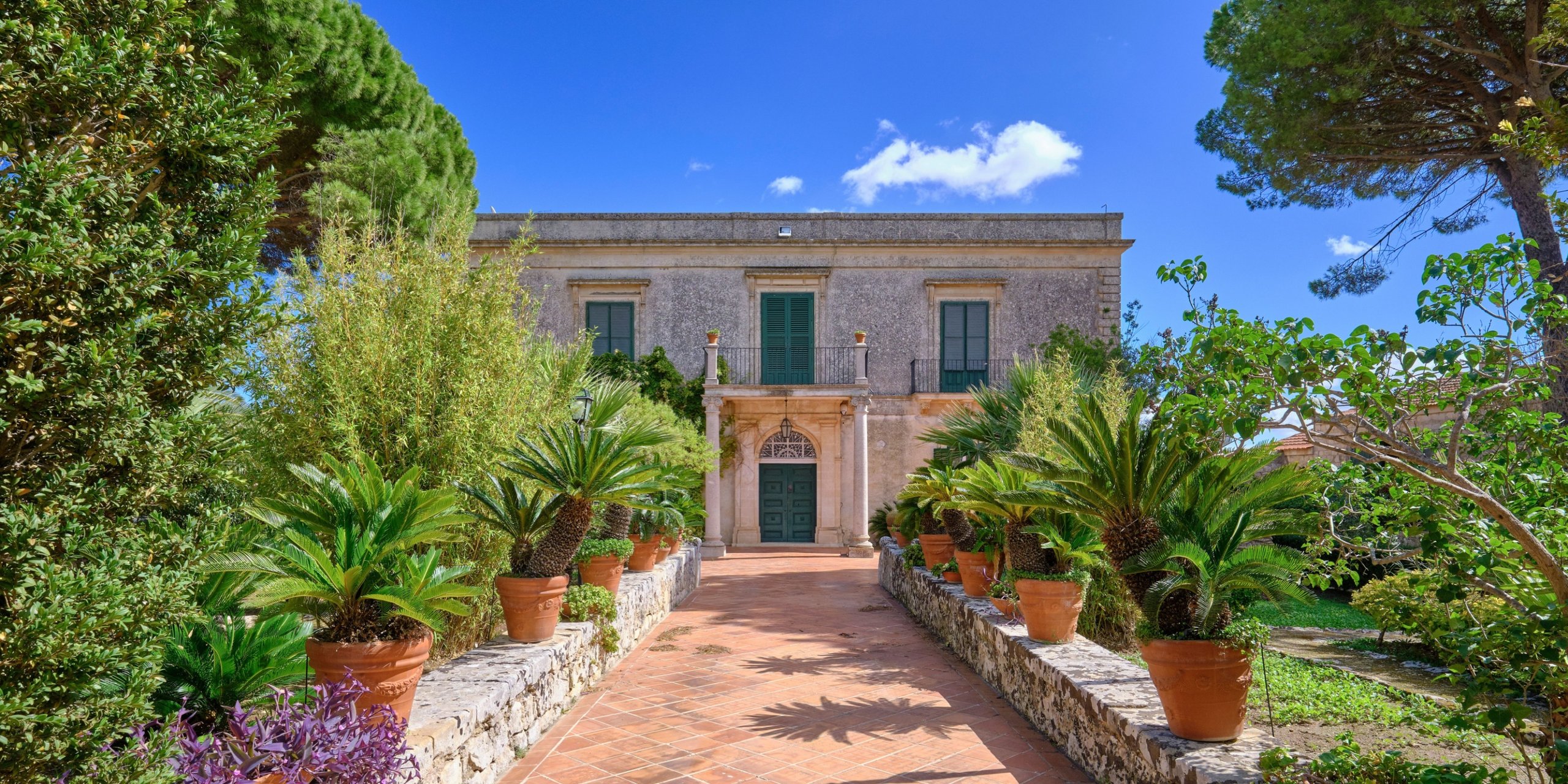Buying a home in Italy isn’t just a transaction – it’s often the fulfilment of a dream. That first moment when you stand in front of “the one” – whether it’s a Tuscan stone farmhouse or a city apartment with faded frescoes – feels magical. But once your heart has said yes, your head needs to take charge.
Making an offer in Italy is more than a handshake or a quick deal over cappuccino. It’s a legal process that commits both parties, backed by formal documents and potentially several thousands of euros. It’s essential to understand the steps and have reliable guidance so you protect your investment and move forward with confidence.
Here’s everything you need to know about making an offer on Italian property – from your first price discussion to the final signature.
Contents
- Understanding the buying process
- How to assess the right offer
- Making an offer in Italy
- Adding conditions to your offer
- What happens next
- Protecting your funds against currency fluctuations
Understanding the buying process
Italy’s property buying process follows a structured format with clearly defined stages. Unlike in some other countries, making an offer is not casually done – once accepted and signed, you’ve taken significant legal steps.
There are three key stages:
- The proposta irrevocabile d’acquisto (reservation offer): This is your official offer to the seller. Once signed by both parties, it takes the property off the market.
- The compromesso (preliminary contract): A binding document with financial commitments that outlines sale terms, often accompanied by a deposit of around 10%.
- The rogito (final deed of sale): Signed before a notary, this transfers the property into your name, and you receive the keys.
These steps apply whether you’re buying a €50,000 village house or a €1 million lakeside villa. And because it’s a legal process from the get-go, professional representation is essential. A local lawyer (avvocato) and bilingual estate agent or property adviser can make a big difference.
How to assess the right offer
Determining an appropriate offer price can feel like guesswork, especially in a foreign market where insider knowledge matters. But with the right approach, you can submit an offer that’s attractive to the seller and fair to you.
Start with comparable listings. Use local estate agent websites and Italian property portals to check asking prices. These can give context around price per square metre, especially in specific neighbourhoods.
To support your offer further, use Italy’s public property valuation tool – the Osservatorio del Mercato Immobiliare (OMI) – hosted by the Agenzia delle Entrate. It provides official valuation brackets for towns and cities, based on location and property type. While it doesn’t show exact sale prices, it’s a credible benchmark for negotiations.

Also consider how long the property has been on the market and any work it needs. If the home has been listed for a year with no interest, or if there’s visible disrepair, many sellers will expect and accept offers below the asking price. And remember – rural and historical homes tend to be less appealing to local buyers, which often puts you in a strong position.
Finally, dig into the seller’s circumstances. Are they resident in Italy? Is the property part of an inheritance? If multiple siblings own it jointly, the offer may take longer to process. Knowledge is power – the more you can gather, the better prepared you’ll be to shape an offer that works on both sides.
Making an offer in Italy
Once you’re ready, your formal offer is made in writing – typically via the estate agent – as a proposta irrevocabile d’acquisto (binding offer to purchase). This is a legally significant document. You’ll state your offer price, any conditions, a validity date and usually pay a small deposit – often €1,000 to €5,000 – to show intent.
When signed and accepted by the seller, this offer reserves the property and temporarily takes it off the market. Make sure your lawyer reviews the document before you sign – you are already committing, so it’s important everything is in order.
Italian sellers often expect offers below the asking price. Discounts of 5–15% are common, particularly if the property needs work or has been on the market a while. However, in places like Florence or central Rome, where demand outpaces supply, flexibility may be limited.
Once accepted, you’ll move quickly to the compromesso, so having your financing or cash arrangements lined up is key. Delaying at this stage could risk losing your deposit.
Adding conditions to your offer
In Italy, it’s possible – and wise – to attach conditions, known as clausole sospensive, to your offer. These suspensive clauses trigger an automatic cancellation of the agreement if certain requirements are not met.
The most common clauses include:
- Mortgage approval: If you’re applying for a mortgage in Italy, the purchase offer can include a clause stating it’s only valid if your loan is approved.
- Passing a property survey: You might request that the agreement holds only if the property receives a satisfactory technical inspection.
- Permit verification: If there’s doubt over renovation work, your clause might state that planning permissions must be verified.
Working with a solicitor is crucial here, as these clauses must be clearly worded in Italian to be enforceable. Never rely on verbal promises or informal notes – Italy’s legal system requires documentation to be specific and signed.
If a clause is triggered and the terms are unmet, you’ll usually be entitled to your deposit back. Without such clauses, withdrawing may mean forfeiting your deposit or worse – legal action by the seller.
What happens next
Once the seller accepts your offer, the next step is signing the compromesso – the preliminary contract. This outlines all major sale details: price, included fixtures, deposit amount and a target date for the final transfer.
At this stage, you’ll typically pay a deposit of around 10–20% of the purchase price. If you walk away after the compromesso, the seller keeps the deposit. If the seller backs out, they usually pay back double what you paid – as specified under Italian law.
The final stage is the rogito. This is completed in the presence of a notary (notaio), who ensures the funds have been paid, all documents are in order and the title is transferred. It’s only after signing this document that you become the legal owner and receive the keys.
While the steps are clear-cut, timelines vary. The full buying process may take 6–12 weeks, or longer if complications arise. Flexibility and a trusted adviser in Italy make all the difference.
Protecting your funds against currency fluctuations
One of the hidden costs of buying abroad is the exchange rate. If you’re buying in euros but your income or savings are in pounds, dollars or another foreign currency, even small shifts in the market can create big surprises.
Let’s say you agree to buy a property for €200,000. At the time, one pound buys €1.17 – so you’re expecting to pay around £171,000. But by the time the funds are due, the rate drops to €1.13 – and suddenly you owe closer to £177,000. That’s over £6,000 lost purely to market movement.
Using a specialist foreign exchange service can eliminate that risk. Companies like Smart Currency Exchange allow you to lock in your exchange rate months in advance using a tool called a forward contract. It guarantees the rate you’ll use, no matter what happens in the markets.
Get your free guide to currency for property purchases
Financial clarity is just as important as finding the right house or negotiating a good deal. If you’re committing to paying in euros, speak to a currency expert early in your journey. The peace of mind – and the saved money – can be significant.
Start your Italian property journey with confidence
Making an offer in Italy is a thrilling milestone – it’s where your vision starts becoming reality. But it’s also a serious commitment, one that deserves clarity, support and careful planning.
At Your Overseas Home, we’ve helped thousands of buyers through every stage of their property journey. From finding verified bilingual agents to checking legal contracts and securing fair currency exchange, we provide advice tailored to your needs as an international buyer.
Curious about your options? Book a free consultation with our Italian property experts. We’re here to help you find and buy your dream home in Italy – the smart, safe and stress-free way.









